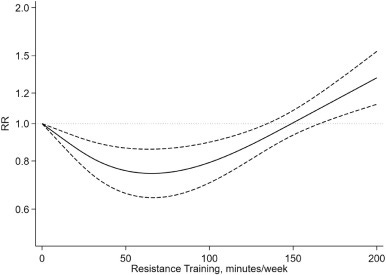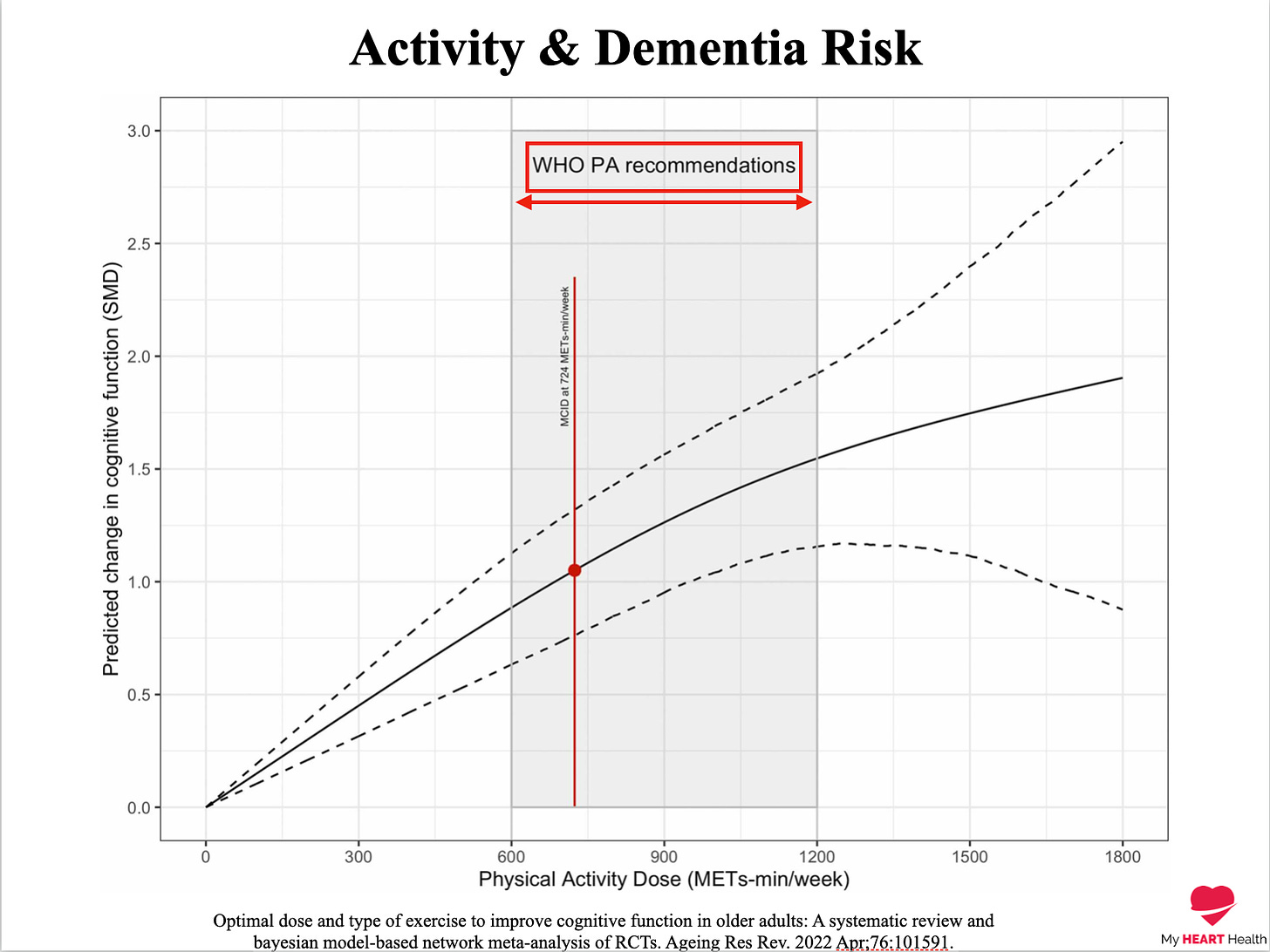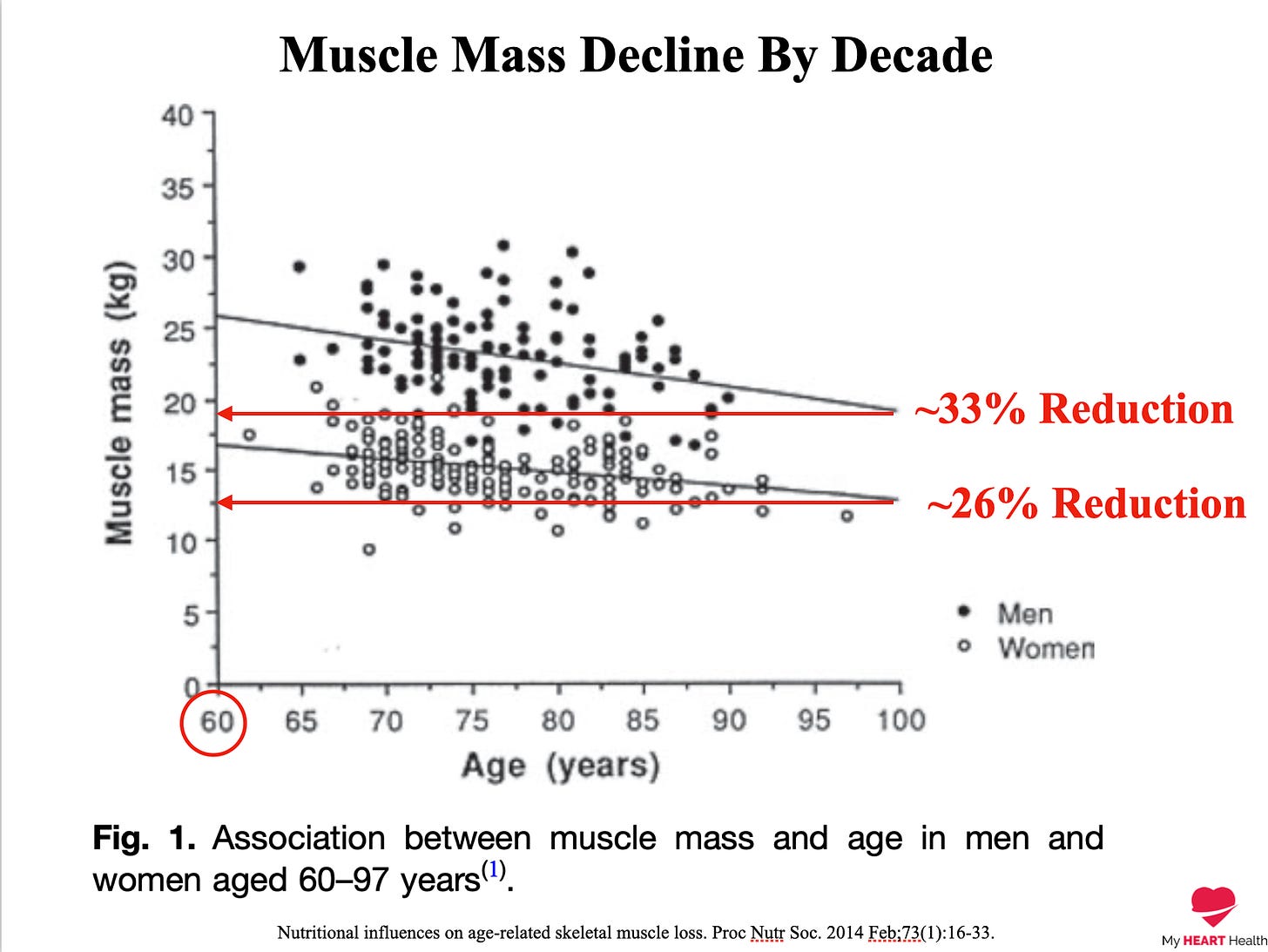Why You Should Lift Heavy Things. The Benefits Of Resistance Training

More activity. Longer, Healthier Life.
As a rule of thumb, we know that is true.
But the type of activity matters.
The WHO recommends 150 - 300 minutes of moderate to vigorous physical activity per week.
Weekly activity in this range and even above has been consistently shown to reduce the likelihood of an early death, cardiovascular disease, dementia; the list goes on and on and on1.
And on and on and on.
However, this is where most people stop.
What they fail to see is the next line in the WHO guidelines that suggest two (or more) strength training sessions per week, in addition to the 150-300 minutes of physical activity2.
I am one of the biggest offenders here.
When I started exercising, I exclusively did aerobic training, mostly running.
Weight training was just not on my radar.
I was wrong. Dead wrong.
I do not propose you switch from aerobic to resistance training.
What I am suggesting is that if you are not doing resistance training IN ADDITION to your aerobic training, you are missing out.
So what are the benefits of resistance training?
Less All-Cause Mortality (ACM) - Death From Any Cause
For those who engage in up to 60 mins per week of resistance training, there is a substantial reduction in the chances of dying from ANYTHING over a set period compared to those who do not do resistance training3.
This level of weekly resistance training is associated with reductions in all-cause mortality of up to 27%. Interestingly, the benefit started to diminish with resistance training volumes above 60 mins per week.

Dementia
The evidence that higher aerobic fitness levels are associated with lower rates of dementia is clear4.
What is less clear are the benefits of resistance training in improving cognitive health and delaying cognitive decline.

The addition of regular resistance training has been shown to delay cognitive decline in those with the early stages of cognitive impairment but also in those without cognitive impairment56.
Resistance training regimes, even at moderate intensity, i.e. no very heavy loads, have demonstrated benefits in cognitive health and delays in cognitive decline7.
What is now clear is that if cognitive health is a priority for you, adding resistance training should be a major consideration.
Mobility & Falls
We all have to die from something.
Even if we maximally reduce our risk of conditions such as cardiovascular disease, other competing causes of death become an issue.
Falls are one of those issues.
For those with traumatic hip fractures8:
-
One in ten is dead within one month.
-
Three in ten are dead within one year.
Scary stuff.
The combination of aerobic, resistance and balance training has been shown to significantly reduce the risk of falls in high-risk patients9.
The key to not dying as a result of a fall is not to fall in the first place.
Most adults are losing muscle mass and, by the later stages of life, will have lost 25 to 33% or more of their original muscle mass10.

Resistance training is the key to minimising the progressive loss of muscle mass and strength.
Cancer
Those with cancer often lose significant amounts of muscle mass over the course of their illness. This resultant muscle loss is termed sarcopenia or, in extreme cases, cachexia11.
Regular physical activity in those with cancer has a range of benefits, including12:
-
Less fatigue
-
Improved quality of life
-
Improved physical and psychosocial metrics
-
Reduced chances of cancer recurrence
-
Improved odds of survival.
All in all. Strength training is a must for those with cancer who can engage in physical activity.
Resistance training, specifically during cancer treatment, does not improve lean muscle mass, but it significantly reduces the amount that is lost. This is a major win.
This maintenance of lean muscle mass due to resistance training is associated with reductions in all-cause mortality in those who have had cancer previously.
Metabolic Health
Aerobic activity has traditionally been the go-to exercise for those looking to optimise their metabolic health, and the benefits are overwhelmingly obvious.
For those with the highest levels of fitness, rates of type 2 diabetes are almost nonexistent13.
However, where the real gains are made is when regular aerobic activity is combined with resistance training to optimise one's metabolic health14.
So while I am a huge advocate of aerobic training to improve metabolic health, excluding resistance training is leaving a significant opportunity on the table.
The list of benefits from resistance training also includes:
-
Increased lean muscle mass
-
Improved metabolic rate
-
Fat loss
-
Improved physical performance
-
Improved walking speed
-
Improved functional independence
-
Improved self-esteem
-
Visceral fat loss
-
Improved insulin sensitivity
-
Lower cholesterol
-
Lower blood pressure
-
Improved bone health
-
Less back pain
The benefits of resistance training are overwhelmingly clear.
This is not to suggest you switch from aerobic to resistance training.
This is about integrating both.
It’s the combination that is key.
Long-Term Leisure-Time Physical Activity Intensity and All-Cause and Cause-Specific Mortality: A Prospective Cohort of US Adults. Circulation. 2022 Aug 16;146(7):523-534.
https://www.who.int/news-room/fact-sheets/detail/physical-activity
Resistance Training and Mortality Risk: A Systematic Review and Meta-Analysis. Am J Prev Med. 2022 Aug;63(2):277-285.
Optimal dose and type of exercise to improve cognitive function in older adults: A systematic review and bayesian model-based network meta-analysis of RCTs. Ageing Res Rev. 2022 Apr;76:101591.
Resistance training improves cognitive function in older adults with different cognitive status: a systematic review and Meta-analysis, Aging & Mental Health, 26:2, 213-224,
Lifting cognition: a meta-analysis of effects of resistance exercise on cognition. Psychol Res. 2020 Jul;84(5):1167-1183.
Lifting cognition: a meta-analysis of effects of resistance exercise on cognition. Psychol Res. 2020 Jul;84(5):1167-1183.
https://www.nice.org.uk/guidance/cg124/documents/hip-fracture-final-scope2
The Health Benefits of Resistance Exercise: Beyond Hypertrophy and Big Weights. Exercise, Sport, and Movement 1(1):e00001, January 2023.
Nutritional influences on age-related skeletal muscle loss. Proc Nutr Soc. 2014 Feb;73(1):16-33.
https://www.cancer.gov/about-cancer/treatment/research/cachexia
The Health Benefits of Resistance Exercise: Beyond Hypertrophy and Big Weights. Exercise, Sport, and Movement 1(1):e00001, January 2023.
Prognostic value of exercise capacity in incident diabetes: a country with high prevalence of diabetes. BMC Endocr Disord 22, 297 (2022).
Impact of different training modalities on glycaemic control and blood lipids in patients with type 2 diabetes: a systematic review and network meta-analysis. Diabetologia. 2014;57(9):1789–97.




